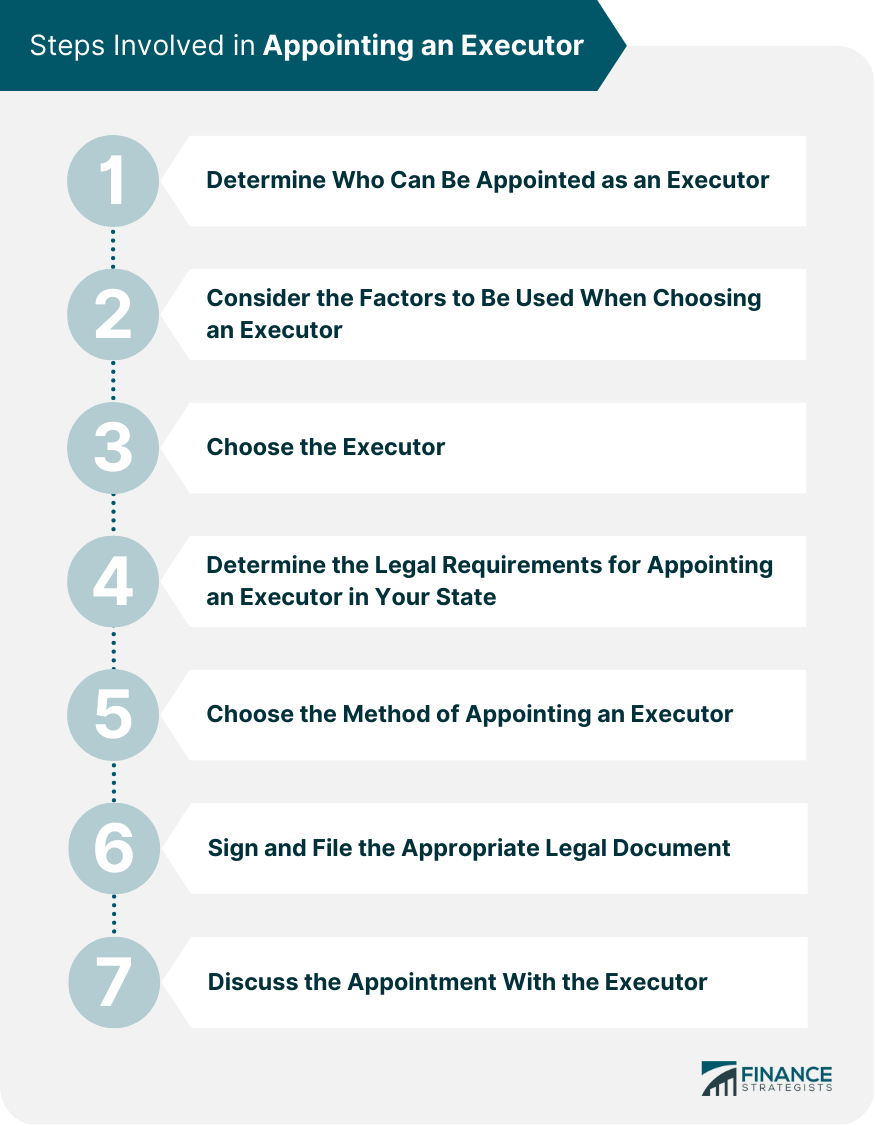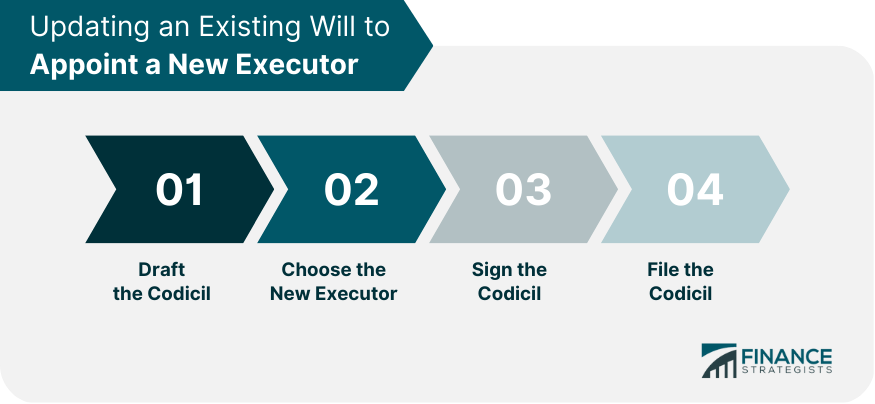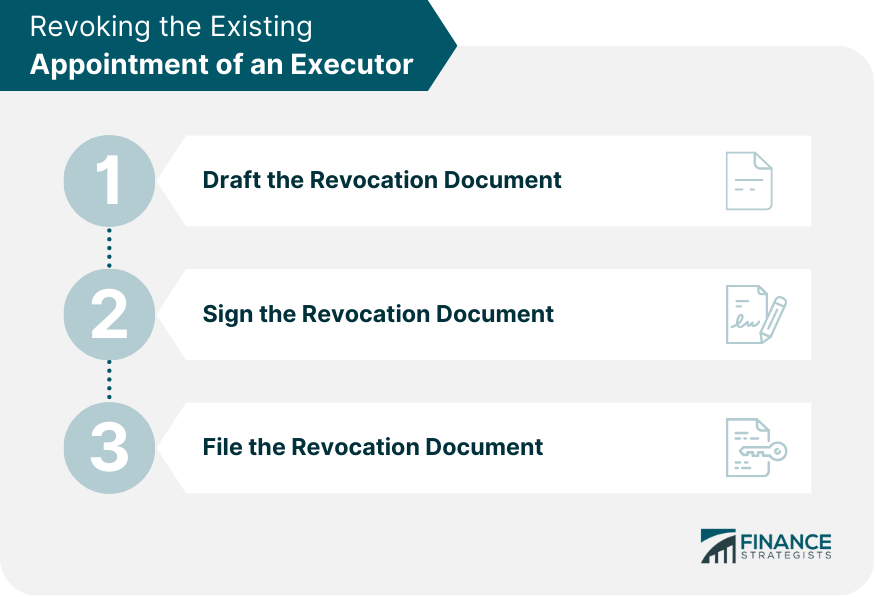A trustworthy executor is someone who is reliable, honest, and responsible. They should have a reputation for integrity and be able to manage finances competently. The executor should be able to carry out the wishes of the deceased and handle any issues that arise during the management of the estate. If an executor is not trustworthy, they may not fulfill their duties and responsibilities properly. This could lead to disputes among beneficiaries, delays in the distribution of assets, and even legal action. Choosing someone who is not trustworthy could also lead to the mismanagement of the estate and the loss of assets. It is important to choose an executor who is impartial and able to manage the estate fairly and equitably. They should be able to communicate effectively with all parties involved and have a good understanding of family dynamics. Choosing an executor is a vital aspect of estate planning as they are responsible for managing the estate and ensuring that the wishes of the deceased are fulfilled. Here is a comprehensive guide that outlines the steps involved in appointing an executor to assist you through the process. Before you can appoint an executor, it is important to determine who is eligible to serve as an executor. Generally, anyone who is over the age of 18 and of sound mind can be appointed as an executor. However, some states have restrictions on who can be appointed as an executor. For example, some states prohibit convicted felons or individuals who have a conflict of interest from being appointed as an executor. Choosing an executor is an important decision that requires careful consideration. When choosing an executor, it is important to consider the following factors: Trustworthiness: The executor should be trustworthy and have a reputation for honesty and integrity. Financial Knowledge: The executor should have a good understanding of finances and be able to manage the deceased's estate. Availability: The executor should be available to manage the estate and handle any issues that arise. Family Dynamics: Consideration should be given to family dynamics when choosing an executor. It is important to choose someone who can remain impartial and manage the estate in a fair and equitable manner. Once you have considered the factors above, it is time to choose the executor. The executor should be someone who meets the eligibility requirements and possesses the necessary qualities to manage the estate. It is important to note that the legal requirements for appointing an executor may differ depending on the state. To ensure that all legal requirements are met, it is highly recommended to seek the guidance of an attorney who specializes in estate planning. Generally, the appointment of an executor must meet the following legal requirements: Capacity: The person appointing the executor must have the legal capacity to do so. This means that they must be of sound mind and understand the consequences of their actions. Intent: The person appointing the executor must have the intent to appoint the executor. This can be demonstrated through a will or other legal documents. Formalities: The appointment of an executor must comply with the formalities required by law. For example, in some states, the appointment of an executor must be in writing and signed by the person making the appointment. There are several methods of appointing an executor. The most common method is through a will. A will is a legal document that appoints an executor to manage the estate and outlines the wishes of the deceased. It is strongly advised to have an attorney who specializes in estate planning assist in drafting a will. If you have an existing will and wish to appoint a new executor, you can update your will through a codicil. A codicil is a legal document that amends an existing will. Alternatively, an executor can be appointed through a trust or power of attorney. A trust is a legal arrangement where a trustee is appointed to manage assets on behalf of a beneficiary. A trustee can also be appointed to manage the assets of an estate. Power of attorney is a legal document that gives a person the authority to act on behalf of another person. A power of attorney can be used to appoint an executor to manage the estate. Once you have chosen the method of appointing an executor, the appropriate legal document must be signed and filed with the appropriate probate court. If you have chosen to appoint an executor through a will, the will must be signed by the person making the appointment in the presence of witnesses. The will should then be filed with the appropriate probate court. If you have chosen to appoint an executor through a codicil, the codicil must be signed by the person making the appointment in the presence of witnesses. The codicil should then be filed with the appropriate probate court. If you have chosen to appoint an executor through a trust, the trust must be signed by the person making the appointment. The assets of the estate can then be transferred into the trust. If you have chosen to appoint an executor through the power of attorney, the power of attorney must be signed by the person making the appointment. A power of attorney should then be filed with the appropriate probate court. Once the executor has been appointed, it is important to discuss the appointment with them. The executor should understand their duties and responsibilities and be aware of the wishes of the deceased. It is also important to provide the executor with contact information for any attorneys, financial advisors, or other professionals who may be involved in the management of the estate. If you have an existing will and wish to appoint a new executor, you can update your will through a codicil. A codicil is a legal document that amends an existing will. The following are the steps involved in updating an existing will to appoint a new executor: If you have an existing appointment of an executor and wish to revoke it, you can do so through a revocation document. The following are the steps involved in revoking an existing appointment of an executor: Appointing an executor is a crucial part of estate planning that requires careful consideration. The executor should possess the necessary qualities and eligibility requirements to manage the estate effectively, and the appointment must meet the legal requirements in your state. Trustworthiness is perhaps the most important factor to consider when choosing an executor. A trustworthy executor ensures that the wishes of the deceased are carried out, and the estate is managed correctly. Therefore, if you have not already, it is important to start thinking about your own estate planning. Seeking the guidance of an attorney who specializes in estate planning can provide valuable insight into the best practices for appointing an executor and creating a comprehensive estate plan. It is crucial to take action today to guarantee that your wishes are executed and your loved ones are financially secure when you are no longer able to do so.The Importance of Choosing a Trustworthy Executor
How to Appoint an Executor
Step 1: Determine Who Can Be Appointed as an Executor
Step 2: Consider the Factors to Be Used When Choosing an Executor
Step 3: Choose the Executor
Step 4: Determine the Legal Requirements for Appointing an Executor in Your State
Step 5: Choose the Method of Appointing an Executor
Step 6: Sign and File the Appropriate Legal Document
Step 7: Discuss the Appointment With the Executor

Updating an Existing Will to Appoint a New Executor
1. Draft the Codicil: The first step is to draft a codicil. A codicil should be drafted with the assistance of an attorney who specializes in estate planning.
2. Choose the New Executor: The next step is to choose the new executor. The new executor should be named in the codicil, and their contact information should be included.
3. Sign the Codicil: Once the codicil has been drafted and the new executor has been chosen, the codicil must be signed by the person making the appointment in the presence of witnesses.
4. File the Codicil: After the codicil has been signed and witnessed, it should be filed with the appropriate probate court.
Revoking the Existing Appointment of an Executor
1. Draft the Revocation Document: The first step is to draft a revocation document. A revocation document should be drafted with the assistance of an attorney who specializes in estate planning.
2. Sign the Revocation Document: The revocation document must be signed by the person who made the appointment in the presence of witnesses.
3. File the Revocation Document: After the revocation document has been signed and witnessed, it should be filed with the appropriate probate court.
Final Thoughts
How to Appoint an Executor FAQs
You can appoint an executor in your estate plan by including their name and contact information in your will, trust, or power of attorney. It is important to consult with an attorney specializing in estate planning to ensure all legal requirements are met.
When choosing an executor, it is important to consider factors such as trustworthiness, financial knowledge, availability, and family dynamics. The executor should be someone who is reliable, honest, and responsible, and able to manage finances competently.
Yes, you can change your executor after you have appointed them. If you have an existing will, you can update it through a codicil. Alternatively, you can appoint a new executor through a trust or power of attorney.
An executor is responsible for managing the estate of a deceased individual and ensuring that their wishes are carried out. This includes managing assets, paying bills, notifying creditors, filing tax returns, distributing assets, and keeping accurate records of all financial transactions related to the estate.
Choosing a trustworthy executor is important to ensure that the estate is managed properly and that the wishes of the deceased are carried out. If an executor is not trustworthy, they may mismanage the estate and cause disputes among beneficiaries. A trustworthy executor is someone who is honest, reliable, and able to manage finances competently.
True Tamplin is a published author, public speaker, CEO of UpDigital, and founder of Finance Strategists.
True is a Certified Educator in Personal Finance (CEPF®), author of The Handy Financial Ratios Guide, a member of the Society for Advancing Business Editing and Writing, contributes to his financial education site, Finance Strategists, and has spoken to various financial communities such as the CFA Institute, as well as university students like his Alma mater, Biola University, where he received a bachelor of science in business and data analytics.
To learn more about True, visit his personal website or view his author profiles on Amazon, Nasdaq and Forbes.















